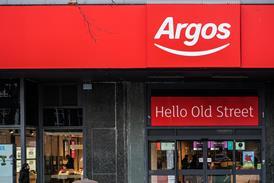Looking through The Grocer each week, it’s interesting to see just how much content now focuses on innovation from entrepreneurial start-ups.
These fresh-thinking, committed-to-the-core individuals and their inspiring brands seem to outdo many big players in bringing something genuinely new to the market.
Regardless of which category they play in, they watch with eagle eyes every step of the journey their products take. Why? Because there will be an immediate and profound impact on their lives and bank balances if their brands fail. That’s a pretty daunting thought - and it’s miles away from the thinking of many mainstream marketeers.
”The passion and conviction of entrepreneurs is contagious”
At one of our recent Thrive Talks involving MD and CEO-level guests, we asked: what will it take to instil and nurture more entrepreneurial mindsets in big businesses so as to drive better innovation? We questioned how successful entrepreneurs behave differently to regular ‘employees,’ and the debate this generated was hugely stimulating.
One of the biggest challenges big businesses face is getting internal teams in a big structure to treat the money they spend on innovation as if it were their own. If their own money were at stake, would they go ahead and launch a new SKU that required a £2m new tool on the production line?
The other big question for big business is: do enough people in the team have belief in the leader or boss? The passion and conviction of entrepreneurs is contagious and addictive, making teams pull together and work their very best to achieve goals. It made me wonder, do we need more naturally engaging and charismatic entrepreneurial leaders in the world of fmcg?
Entrepreneurs are rarely fazed. They take knocks but then move on and carry on. In an entrepreneur’s mind, seedlings take time to nurture and grow. They realise they need to listen and act on failures, wholeheartedly embracing the learnings to help move to a better and more successful place. How often does that happen in big blue chip businesses or on the shelves of a major retailer?
The best entrepreneurs believe unconditionally (sometimes unwisely) in their idea and would do almost anything to make it a success. Money is clearly critical and the ultimate make or break, but if it becomes restrictive and a distraction, it could do more harm than good. The money comes later and strong entrepreneurs know that.
I think it’s time to integrate more entrepreneurial approaches and behaviour - and therefore less commercial tyranny - into the heart of the innovation process. We would see far more winning innovations in the long term.
Claire Nuttall is founding partner of Thrive


















No comments yet